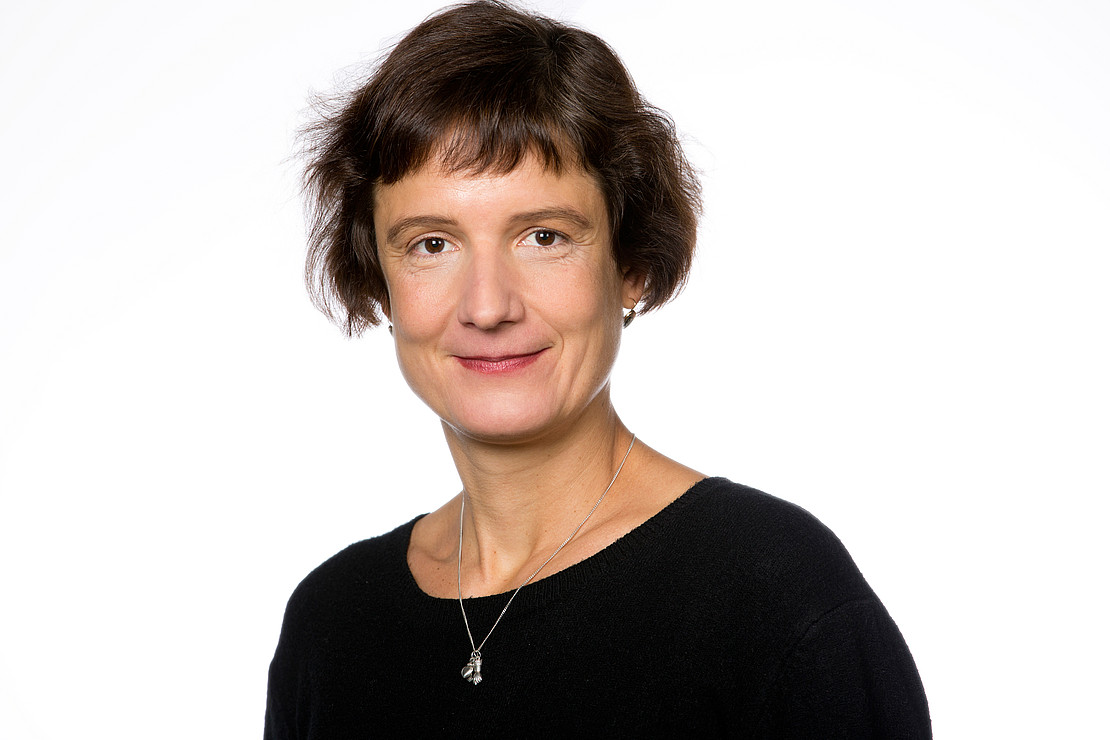This page contains automatically translated content.
Sustainable learning instead of "bulimic learning": New DFG Research Group
 Image: Sonja Rode.
Image: Sonja Rode.Many people are familiar with this phenomenon from their own experience at school or university: Shortly before the exam, they study to the hilt, and shortly after the exam, most of what they have learned is forgotten. Some people call this behavior "bulimic learning" - and this form of learning is not particularly sustainable.
4.2 million for the next four years
How can it be done differently, what conditions must be met so that learning generates sustainable knowledge that can be accessed for a long time to come? These are the questions being addressed by a new research group that has now been approved by the German Research Foundation (DFG). Endowed with 4.2 million euros, it aims to make a significant contribution to the development of effective teaching-learning scenarios and a theory of sustainable learning in educational contexts over the next four years. An extension for another four years is possible.
The group's spokesperson is Professor Dr. Tobias Richter, holder of the Chair of Psychology IV at the Julius Maximilian University of Würzburg and formerly Professor of General Psychology at the University of Kassel. Researchers from the universities of Kassel, Bochum, Duisburg-Essen, Freiburg, Giessen, Osnabrück, Passau, Tübingen and the Technical University of Munich are also involved.
Little research on sustainable learning
"Much of what is learned in school can no longer be retrieved from long-term memory after a relatively short time. We understand sustainable learning as a form of learning that counteracts rapid forgetting of acquired knowledge and enables students to apply the knowledge they have acquired later on," Richter describes. Ideally, this knowledge is retained for a lifetime. "Unfortunately, there is little systematic research - let alone comprehensive theory - from which to derive recommendations on how learning and instruction should be designed in schools to create lasting knowledge," Richter says.
Desirable complications improve learning success
The research group now aims to help close this knowledge gap. To do so, it relies on a framework model that combines research on so-called "desirable impediments" to learning with the principle of "meaningfully embedded learning." Such obstacles may make learning more difficult in the short term, but in the long term they promote the retention and transfer of what has been learned.
The University of Kassel is participating in the research group with four subprojects. Prof. Dr. Rita Borromeo Ferri (Institute of Mathematics) and Prof. Dr. Frank Lipowsky (Institute of Educational Sciences) are investigating the principle of nested learning in the subject of mathematics in elementary school. Interleaved learning is about alternating learning content rather than dealing with it one after the other. Prof. Dr. Martin Hänze (Institute of Psychology) and Prof. Dr. Roland Berger from the University of Osnabrück are also researching nested learning, but in the subject of physics in secondary school. Prof. Dr. Ralf Rummer (Institute of Psychology) and Prof. Dr. Judith Schweppe from the University of Passau deal with the testing effect in the subject German. The testing effect states that knowledge recall already in the learning phase promotes long-term retention. Prof. Dr. Mirjam Ebersbach (Institute of Psychology) is researching the effect of time-distributed processing of solution examples in the subject of mathematics. Distributed learning compared to learning at a stretch should also contribute to sustainable learning. All studies are to be conducted at schools in and around Kassel with curriculum-relevant teaching content.
Mirjam Ebersbach explained, "With our innovative approach of "boosting" teaching and learning mechanisms that have proven effective in the laboratory with cognitively activating principles and investigating the effects in the school setting, we will gain important insights for theory and practice. In addition, we will strengthen the international visibility of empirical educational research at the University of Kassel."
Contact
Prof. Dr. Mirjam Ebersbach
University of Kassel
Institute of Psychology
Phone +49 561 804-2036
E-mail mirjam.ebersbach[at]uni-kassel[dot]de